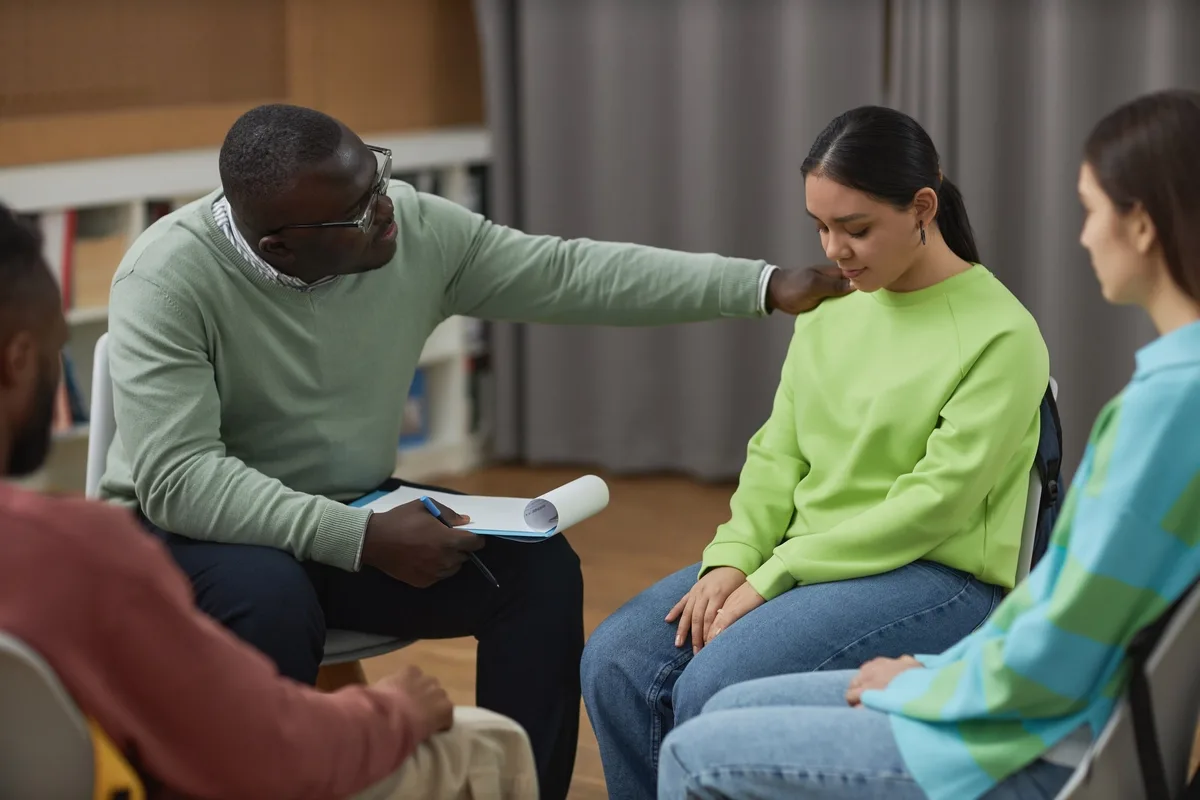24/7 Helpline:
(866) 899-221924/7 Helpline:
(866) 899-2219
Learn more about PTSD Treatment centers in Morton County

Other Insurance Options

Magellan Health

Choice Care Network

Aetna

Self-pay options

MHNNet Behavioral Health

ComPsych

Molina Healthcare

Lucent

AllWell

BlueCross

UnitedHealth Group

EmblemHealth

BlueShield

PHCS Network

Premera

WellCare Health Plans
Beacon

Regence

Kaiser Permanente

BHS | Behavioral Health Systems

North Dakota Adult and Teen Challenge
The reputable North Dakota Adult and Teen Challenge is a nonprofit addiction treatment center that f...







































